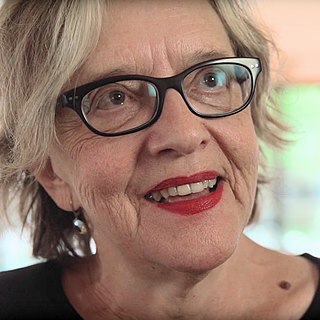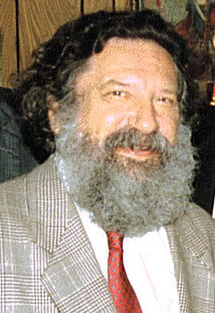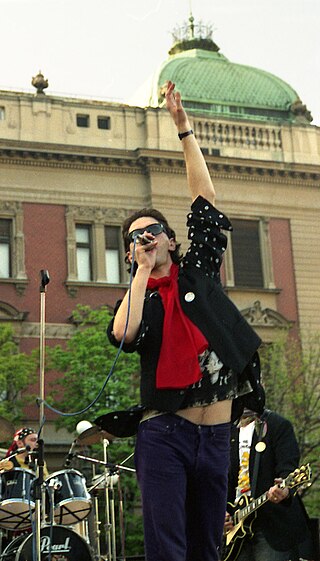Related Research Articles

Yugoslavia was a country in Southeast and Central Europe that existed from 1918 to 1992. It came into existence following World War I, under the name of the Kingdom of Serbs, Croats and Slovenes from the merger of the Kingdom of Serbia with the provisional State of Slovenes, Croats and Serbs, and constituted the first union of South Slavic peoples as a sovereign state, following centuries of foreign rule over the region under the Ottoman and Habsburg empires. Peter I of Serbia was its first sovereign. The kingdom gained international recognition on 13 July 1922 at the Conference of Ambassadors in Paris. The official name of the state was changed to Kingdom of Yugoslavia on 3 October 1929.

Young Bosnia refers to a loosely organised grouping of separatist and revolutionary cells active in the early 20th century, that sought to end the Austro-Hungarian rule in Bosnia and Herzegovina.

Slavenka Drakulić is a Croatian journalist, novelist, and essayist whose works on feminism, communism, and post-communism have been translated into many languages.

Jovan Rašković was a Croatian Serb psychiatrist, academic and politician.

After a period of political and economic crisis in the 1980s, the constituent republics of the Socialist Federal Republic of Yugoslavia split apart, but the unresolved issues caused a series of inter-ethnic Yugoslav Wars. The wars primarily affected Bosnia and Herzegovina, neighbouring parts of Croatia and, some years later, Kosovo.
The Praxis school was a Marxist humanist philosophical circle, whose members were influenced by Western Marxism. It originated in Zagreb in the SFR Yugoslavia, during the 1960s.

Miodrag Perišić was a Serbian writer, literary critic and politician.
The Memorandum of the Serbian Academy of Sciences and Arts, known simply as the SANU Memorandum, was a draft document produced by a 16-member committee of the Serbian Academy of Sciences and Arts (SANU) from 1985 to 1986.

The Log Revolution was an insurrection which started on August 17, 1990, in areas of the Republic of Croatia which were populated significantly by ethnic Serbs. A full year of tension, including minor skirmishes and sabotage, passed before these events would escalate into the Croatian War of Independence.
The breakup of Yugoslavia was a process in which the Socialist Federal Republic of Yugoslavia was broken up into constituent republics, and over the course of which the Yugoslav wars started. The process generally began with the death of Josip Broz Tito on 4 May 1980 and formally ended when the last two remaining republics proclaimed the Federal Republic of Yugoslavia on 27 April 1992. At that time the Yugoslav wars were still ongoing, and FR Yugoslavia continued to exist until 2003, when it was renamed and reformed as the state union of Serbia and Montenegro. This union lasted until 5 June 2006 when Montenegro proclaimed independence. The former Yugoslav autonomous province of Kosovo subsequently proclaimed independence from Serbia in February 2008.

The Faculty of Law of the University in Belgrade, also known as the Belgrade Law School, is one of the first-tier educational institutions of the University of Belgrade, Serbia. The building is located in the heart of the old part of Belgrade, in the urban neighborhood of Palilula, contiguously to the city park Tašmajdan, on Bulevar kralja Aleksandra.

Sonja Biserko is a Serbian campaigner for human rights. She is the founder and president of the Helsinki Committee for Human Rights in Serbia.
Bogdan Bogdanović was a Serbian and Yugoslav architect, urbanist and essayist. He taught architecture at the University of Belgrade Faculty of Architecture, where he also served as dean. Bogdanović wrote numerous articles about urbanism, especially about its mythic and symbolic aspects, some of which appeared in international journals such as El País, Die Zeit, and others. He was also involved in politics, as a Yugoslav Partisan in World War II, later as mayor of Belgrade. When Slobodan Milošević rose to power and nationalism gained ground in Yugoslavia, Bogdanović became a dissident.

Živorad Kovačević was a Yugoslav and Serbian diplomat, politician, NGO activist, academic and writer.

Montenegrin nationalism is the nationalism that asserts that Montenegrins are a nation and promotes the cultural unity of Montenegrins.

Milorad Ekmečić was a Yugoslav and Serbian historian. During World War II he became a member of the Yugoslav Partisans after the fascist Ustaše perpetrated the Prebilovci massacre, in which 78 members of his family were killed, including his father. He studied at the University of Zagreb and went on to be a professor at the University of Sarajevo, and later at the University of Belgrade. He was a member of several Yugoslav academies of sciences and arts, the author of more than a dozen historical books, and received several significant national awards. Ekmečić authored several important works in socialist Yugoslavia, including his contribution to the acclaimed History of Yugoslavia published in English in 1974, and Stvaranje Jugoslavije 1790–1918 [Creation of Yugoslavia 1790–1918] in 1989. According to his obituary in Vreme news magazine, Ekmečić was considered "a prominent representative of Serbian critical historiography".

Andrej Mitrović was a Serbian historian, professor and author. A specialist of the contemporary history of Serbia and Yugoslavia, he was head of the Contemporary History Department at the Faculty of Philosophy, University of Belgrade. Mitrović wrote extensively about the First World War, the Paris Peace Conference, interwar Europe as well as articles on economic, social, cultural history and historiography.

The Expulsion of the Albanians was a lecture presented by the Yugoslav historian Vaso Čubrilović (1897–1990) on 7 March 1937. The text elaborates on the ethnic composition dynamics of Kosovo and other Albanian-populated areas within Yugoslavia from medieval times to the present. While explaining why previous methods put in place by the Yugoslav authorities to overturn the ethnic majority of Albanians in those areas had failed so far, such as slow colonization or agrarian reforms, it suggested in detail a radical solution – the mass expulsion of Albanians. The expulsion was seen by Čubrilović as a geopolitical measure to prevent potential Albanian irredentism.

Following the rise of nationalism and political tensions, as well as the outbreak of the Yugoslav Wars, numerous anti-war movements developed in Serbia. The 1991 mass protests against the government of Slobodan Milošević which continued throughout the conflicts reinforced the youth's anti-war orientation. Demonstrations in Belgrade were held mostly because of opposition to the Battle of Vukovar, Siege of Dubrovnik and Siege of Sarajevo, while protesters demanded a referendum on a declaration of war and disruption of military conscription.
The Other Serbia or the Second Serbia was a term used in Serbia during the 1990s, to denote groups of intellectuals, who identified as anti-war, anti-nationalist and pro-democracy, united around their opposition to the regime of Slobodan Milošević, media consensus, war, nationalism, and the rhetoric surrounding it.
References
- ↑ Wilmer, Franke (2002). The Social Construction of Man, the State, and War: Identity, Conflict, and Violence in Former Yugoslavia. London: Routledge. p. 222. ISBN 0415929636.
- ↑ "Belgrade Circle NGO: A Brief History" (PDF). Belgrade Circle. Archived from the original (PDF) on 29 September 2007. Retrieved 9 November 2010.
- ↑ "Belgrade Circle Journal (past journal)". Eurozine. 5 July 2006. Retrieved 13 October 2019.
- ↑ Secor, Laura (September 1999). "Testaments Betrayed". Lingua Franca . Retrieved 19 June 2018.
- ↑ "The Other Serbia". University of Southern Maine. 2004-11-03. Archived from the original on 2005-02-19. Retrieved 2022-11-02.